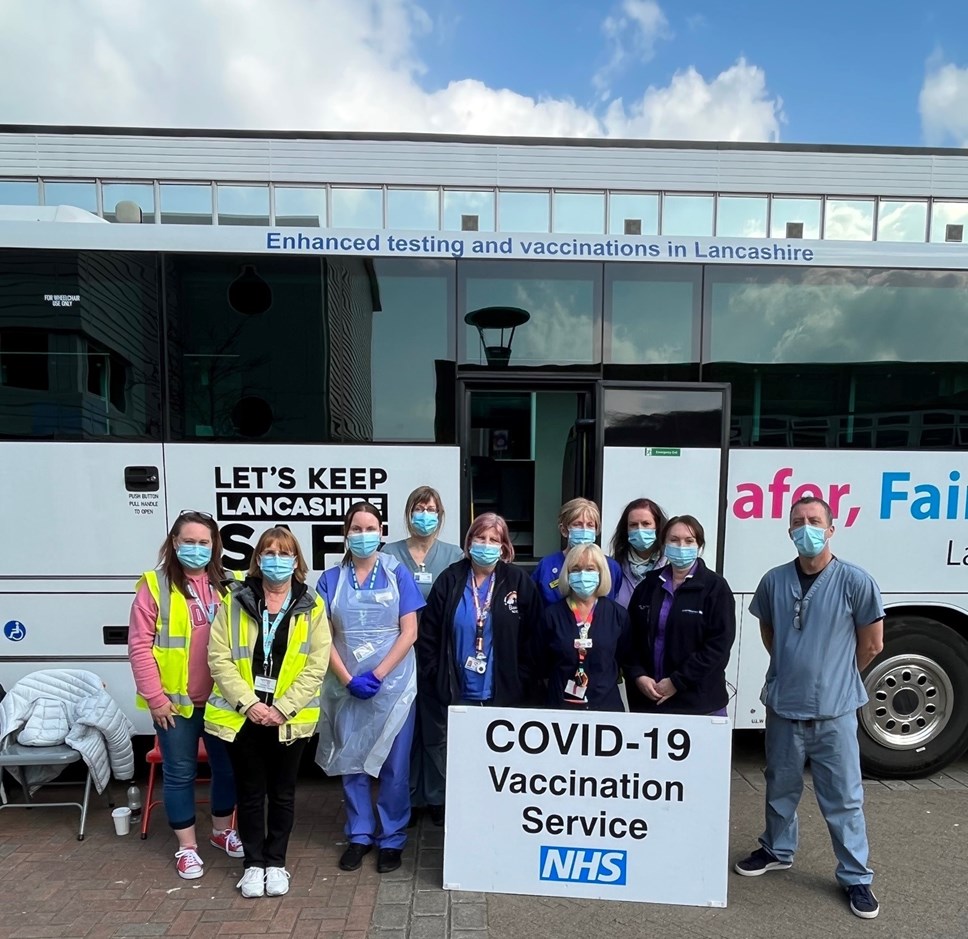
Vaccination bus delivers 1,000th dose to boost Lancashire's protection against Covid-19
Residents have been thanked for coming forward after Lancashire County Council's mobile Covid-19 vaccination service delivered its one thousand dose, strengthening the wall of defence around the county.
Since January the vaccination coach has visited 20 locations around Lancashire in various districts, universities and colleges, delivering first doses, second doses, boosters and spring boosters.
The targeted vaccination work, which has been highlighted by the government as good practice for others to follow, supplements the wider vaccination programme being led by the NHS.
These pop-up sites are supported by district councils and Lancashire Temporary Staffing Agency (LTSA) staff, an internal staffing agency that was set up by the county council at the onset of the pandemic in 2020 to meet demand for residential care roles.
At a recent deployment in Accrington, which saw an especially strong turnout, vaccinators delivered the 1,000th dose. This number has risen further still following a deployment in Preston, with the vaccination bus scheduled to stop by Nelson today (1 April) and Saturday.
Local health chiefs have celebrated the success of the vaccination coaches, which have been the result of careful planning and coordination between the county council, the NHS, community pharmacy, community outreach teams and district councils.
The coach has proved to be a valuable resource to the communities and LCC will continue to plan and deploy where it is needed most.
Dr Sakthi Karunanithi, Director of Public Health, Lancashire County Council, said: "Vaccines remain our best defence against Covid-19.
"Thank you to everyone who has come forward so far. We will continue to use our resources to support the NHS as it looks to deliver spring boosters to the most vulnerable.
"It is never too late so please look out for Lancashire and come forward now to protect yourself, your family, and your community."
Thanks to the success of the vaccination programme and access to antivirals, alongside natural immunity and increased scientific and public understanding about how to manage risk, the population now has much stronger protection against Covid-19 than at any other point in the pandemic.
This is enabling the country to begin to manage the virus like other respiratory infections.
From today (1 April) free testing for the general public ends as part of the UK government's Living with COVID plan, which set out the national strategy to live with and manage the virus.
Free Covid-19 tests will continue to be available to help protect specific groups including eligible patients and NHS and care staff once the universal testing offer ends on 1 April.
From 1 April, people with symptoms of a respiratory infection, including Covid-19, and a high temperature or who feel unwell, are now being advised to try to stay at home and avoid contact with other people until they feel well enough to resume normal activities and they no longer have a high temperature.
To read the new guidance for people with symptoms of a respiratory infection including COVID-19, click here: People with symptoms of a respiratory infection including COVID-19 - GOV.UK (www.gov.uk)
